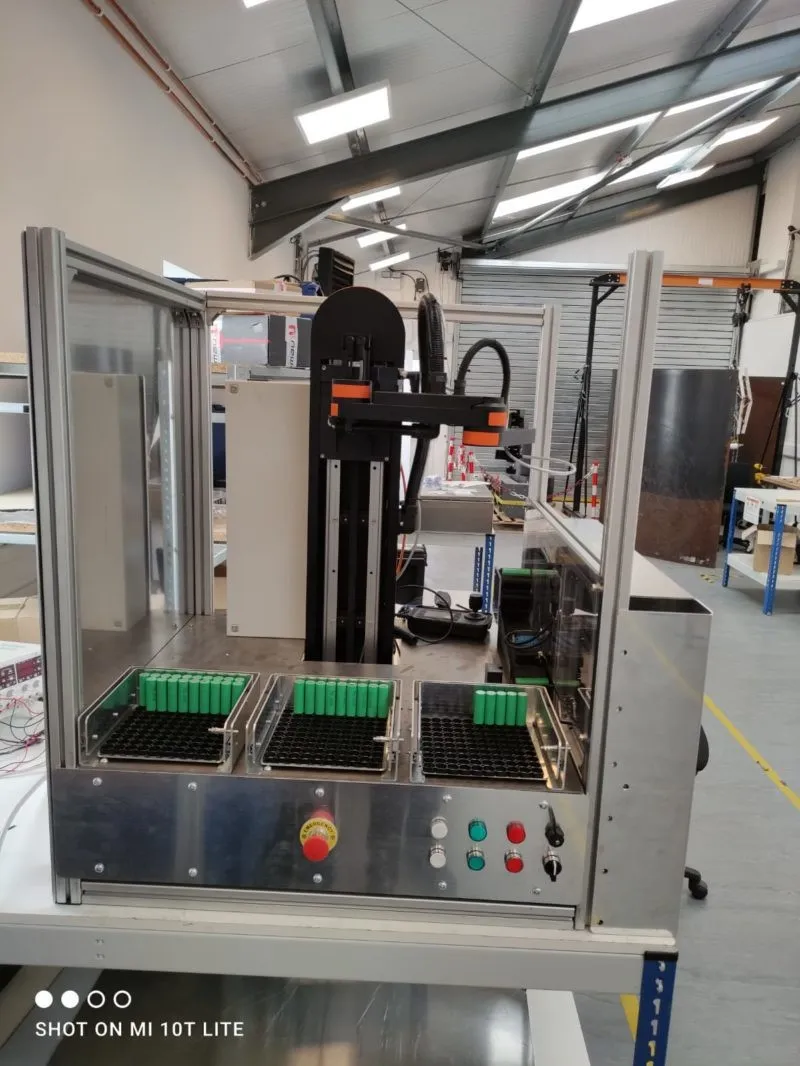A new automated sorting system for spent EV batteries could help allay concerns about wasted cell materials once they’ve outlived usefulness for electric cars.
A group of four British companies has developed an automated system capable of determining the health of individual battery cells and sorting them for further use.
The prototype system is able to detect the health of individual battery cells from batteries taken from end-of-life products – such as batteries that are no longer viable for electric vehicles.
Capable of sorting battery cells according to their state of health, the new automated system is able to detect cells with a state of health above 70% that can be repurposed for further use in applications such as standalone storage systems.
Importantly, the new system – relying as it does on a combination of robotics, software, and automation – has the potential to drastically reduce battery waste. Specifically, not only will the system allow batteries to be repurposed, but it will reduce the need for new batteries, thus reducing raw material waste.

The new system was developed with funding from Innovate UK, the United Kingdom’s innovation agency. The four companies behind the project include Aceleron, Innvotek, MEV, and the Brunel Innovation Centre.
“The average EV battery uses over 3,000 individual cells,” said Carlton Cummins, Aceleron’s CTO and co-founder.
“When that battery reaches the end of its life, we estimate that at least half of the cells will still have a state of health higher than 80%.
“As we increasingly turn to electricity to power our lives, the issue of battery waste is of serious concern and this new system has the potential to preserve cells that would otherwise have been discarded.
“With lithium shortages being forecast as soon as 2035, this machine has enormous potential to preserve what is left – and ensure that we maximise the use of the raw materials used to make battery products.”
The four British companies are hoping to secure further funding so as to continue refining the technology and develop more systems so that more usable cells can be repurposed.
“Although recycling batteries preserves some of the materials, it is not a particularly environmentally friendly process, so using our automation skills to develop a product that has the potential to reduce battery waste so significantly has been a rewarding experience for the team,” added Michael Corsar, CTO of Innvotek.



